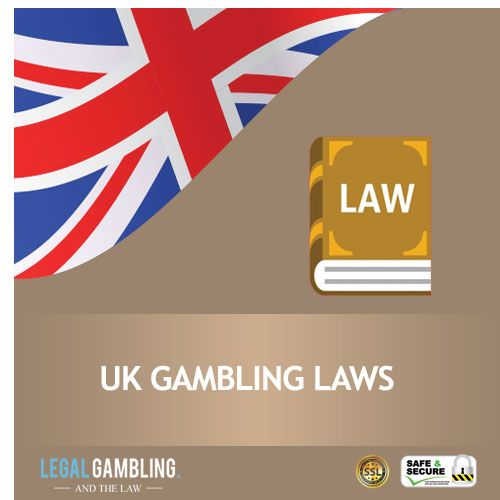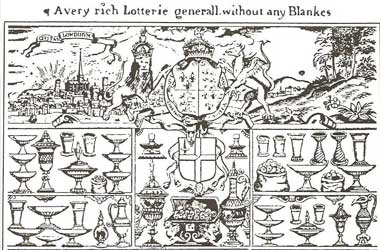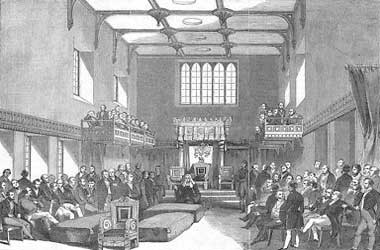Gambling Laws in UK | Guide To Gambling Laws in the UK

Be that betting on horse racing, Premier League football matches, the outcomes of elections, or playing various casino games both in land-based and online casinos, gambling comes in many shapes and sizes and has evolved dramatically over the years.
However, it is essential to keep gambling in check because it can have detrimental effects on people. This is where the gambling laws and regulations come in handy.
The gambling laws aim at curbing adverse effects and reigning in on things such as underage gambling.
In this article, I will tell you more about the gambling laws in the UK, as well as show you:
- The History of Gambling in the UK
- The timeline of gambling laws and acts
- How is gambling regulated in the UK
- Is online gaming regulated and how
To help you get a broader picture, I will start with the history of gambling in the UK and take it from there. Buckle up, as I will be your ghost of UK gambling past, present, and future.
The History of Gambling in the UK
-
Roman Conquest
The history of gambling in the UK can be traced back during the time of the Roman conquest of the Island that brought gambling on horse races and dice games.
-
Tudor Era
However, the first forms of organised nation-wide gambling came during the time of Queen Elizabeth I who authorised England’s first national lottery in 1567, hoping to raise tax revenue to repair the harbors.
The time of the Tudor dynasty also saw the rise of horse racing and ultimately horse betting that flourished during the following two centuries.
-
American Settlements
During the reign of James I who used the lottery revenue to fund the Jamestown settlements in America and fund further expeditions.
-
Victorian Era
However, with the development of gambling came the surge of negative sentiment towards it, and the government saw the need to put some restraint to it and control it.
This gave rise to the first committees such as the Select Committee on Gaming in 1844 in the House of Lords. This finally resulted in the first official government acts aimed at curbing gambling and all sorts of betting
-
The Twentieth Century
These tectonic changes in the legislation changed the outlook of gambling and led to the modern forms of gambling we can see in the UK today.
Now, both land-based and online casinos are licensed and regulated to offer different types of casino games such as slots, table, card, and speciality games.
Also, betting on sports, politics, and even video games is a widespread form of gambling that has also been regulated and is offered to punters both online and in betting shops across the UK.
The History of Gambling Laws — The Timeline of Laws and Acts
The first noted laws and regulations that involved gambling went through Parliament back in the 19th century. At the time, the legislation was heavily influenced by religious and moral sentiment but was also shaped by class differences, where the rich had all the privileges while the working classes had to bear the brunt.
The 1845 Gambling Act
The first act of Parliament that dealt a blow to the growing gambling on horse racing and all other illicit forms of gambling was the 1845 Gambling Act. To put it more precisely, the act itself didn’t deem betting and gambling illegal but rather focused on discouraging the practice by making all wagers enforceable in the eyes of the law. This meant that, even if your bettor or bookmaker ran away with your money, you would receive no help and protection from the law.
At that time, many bettors and bookmakers could be found anywhere, from local gambling dens to public racetracks; however, the act was directed more towards the working classes and giving the police more power to control the gambling that goes on among the working classes while the upper classes were considered exempt from the act.
Some other highlights from the act focused on making cheating illegal and punishable by law. These sections of the law remained in power until reasonably recently; until 2007 to be exact.
The 1853 Betting Act
Another gambling-related Act that found its way to the Parliament was the 1853 Betting Act. This act did not ban betting; on the contrary, it focused on putting a ban on the use and keeping any property for the purposes of betting or gaming. Also, the act aimed at keeping the betting reserved for race tracks instead of having the off-track betting houses all over the UK at the time.
This approach, in fact, led to the expansion of betting on both sides of the specter and turned horse racing into the number one pastime activity for Britons in the Victorian age. Many famous racetracks, such as Cheltenham, Newmarket, Epsom, became increasingly popular as the result.
The number of on-track betting shops was on a par with the off-track ones, especially when at the beginning of the 20th-century greyhound racing came from the US. It allowed the working classes to bet on hounds, as the majority of the racetracks were within cities, unlike the horse racing tracks that were on the outskirts of cities.
The moralist considered the increase in betting on horses and dog racing a growing threat and vied for a new law to be passed, banning all the betting that took place in the cities and local pubs where bookies set up their bases and operations. This culminated in the passing of the 1906 Street Betting Act that should have stopped all on-street betting, but to no avail. The police were reluctant to enforce it and even took bribes to look the other way.
In an attempt to find a middle ground and appease both sides, a new gambling act surfaced: 1934 Betting and Lotteries Act. This act led to limitations on how many races could be scheduled in a year, the minimum age of bettors, and the issuing of betting licenses. The number of races was limited to 104 per year, and no person under the age of 18 could participate. Also, no private lotteries and prize competitions were allowed.
The 1960 Betting And Gaming Act
Probably the most significant change in the British law regarding betting and gambling came with the 1960 Betting And Gaming Act. This act effectively made it possible and legal to establish betting shops and place your bets there instead of in some dark back alleys. However, this act wasn’t kind on greyhound betting and led to its demise.
2005 Gambling Act
The ultimate change in the legal system of the UK regarding gambling and its forms came with the 2005 Gambling Act. The 2005 Gambling Act aimed at making all forms of gambling regulated and licensed by the respective government established body, known as the Gambling Commission. With this new act, the legislator wanted to ensure all gambling is conducted in a fair and regulated manner, and that all sensitive groups, like minors, are kept away from it.
Also, this act will prevent gambling from being a source of crime or disorder and ensure all gambling providers follow strict regulations and norms.
The List of Important Gambling Acts
The following is a list of major breakthroughs in the UK legislation involving gambling:
- 1845 – The Gaming Act is passed
- 1853 – The Betting Act is passed
- 1906 – The Street Betting Act is passed
- 1934 – The Betting and Lotteries Act is passed
- 1961 – The Betting and Gaming Act is passed
- 1993 – The National Lottery Act is passed
- 2005 – The 2005 Gambling Act is passed
- 2014 – Amendments to the 200 Gambling Act regarding advertising passed
How is Gambling Regulated in the UK — The UK Gambling Commission

These operators are required to prove they are financially stable and capable of maintaining it so, as well as provide fair gaming conditions. The UK Gambling Commission verifies all these aspects.
The UKGC is in charge of issuing a gaming license to online and land-based operators for all types of gambling and gaming services. As their main objectives say, they make sure all gaming is fair and reliable, and that no criminal actions are associated with gaming.
Before an operator becomes licensed, they have to go through a thorough examination of their finances, as the UKGC requires all bets to be covered with funds deposited in banks UKGC chooses, so all winnings must be paid. Also, all RNG-powered and Live casino games are tested to see if their outcomes are indeed random and fair.
Even after issuing an operator with a license, the UKGC continues to make frequent checks and audits of their systems and finances, and ensure players are always taken care of. Also, there are gaming commissions from outside the UK that have been whitelisted by the UKGC which wanted to make sure that UK players who play in other jurisdictions are provided for. So, betting sites and casinos that have been licensed by the following commission are also safe and secure.
- Countries within the European Economic Area (EEA)
- Alderney — The Alderney Gambling Control Commission
- Antigua and Barbuda — The Directorate of Offshore Gaming
- Gibraltar — The Gibraltar Gambling Commissioner
- Isle of Man — The Gambling Supervision Commission
- Tasmania — The Tasmanian Liquor and Gaming Commission
Apart from online and land-based casino and betting operators, the UKGC is also in charge of the National Lottery and its games.
Online Gambling Laws
Since online gaming is legal and regulated in the UK, players do not have to worry about being persecuted for betting on sports or playing poker, roulette, slots, or other casino games.
All types of gambling are under the jurisdiction of the UKGC, and the UKGC must license all online operators if they are to offer their services to players from the UK.
Players need to be over 18 and have an Internet connection to participate in online gaming. With the 2005 Gambling Act in power, the legal framework for gambling was set, and players can enjoy a safe and secure gaming environment.
Conclusion
The gambling laws in the UK have changed dramatically over time, but are hailed as the leading ones in the world. With all forms of gambling, both online and land-based deemed legal and under the supervision of the governmental agencies, players in the UK can feel at ease when wagering at their favorite sports or spinning the reels at top online and land-based slots. How has the change in the gambling law affected you? Do you feel safe and secure in UKGC licensed sites? I would love to hear your opinion, so please post it in the comments section below.

 The history of gambling in the UK can be traced back during the time of the Roman conquest of the Island that brought gambling on horse races and dice games.
The history of gambling in the UK can be traced back during the time of the Roman conquest of the Island that brought gambling on horse races and dice games. However, the first forms of organised nation-wide gambling came during the time of
However, the first forms of organised nation-wide gambling came during the time of  During the reign of James I who used the lottery revenue to fund the Jamestown settlements in America and fund further expeditions.
During the reign of James I who used the lottery revenue to fund the Jamestown settlements in America and fund further expeditions. This gave rise to the first committees such as the Select Committee on Gaming in 1844 in the House of Lords. This finally resulted in the first
This gave rise to the first committees such as the Select Committee on Gaming in 1844 in the House of Lords. This finally resulted in the first  Now, both land-based and
Now, both land-based and